Many wives are different from many wives.
Nam Chau was born in 1906 in Dieu Hoa village, Chau Thanh district, the former My Tho province. He was a composer with many famous cai luong plays, the first drama professor of the Saigon National Conservatory of Music and the manager of many famous theater troupes since the 1930s. In the tradition room of Nguyen Dinh Chieu High School (My Tho) today, his name is placed in a prominent position along with famous figures who were former students of Collège de Mytho.
Artist Nam Chau - PHOTO: DOCUMENTARY
In an interview with Bach Khoa magazine (September 1, 1968), artist Nam Chau said: "When I was young, I rarely flirted. Whenever I loved someone, I planned to live together. That's why I had many wives and many children." He repeated that it was many wives, not many wives!
Artist Nam Chau said that in 1926, at the age of 20, he married his first wife in My Tho, and had 3 children before separating. He did not mention the name of this woman, but it was Miss Sau Tram, the lead actress of the Tai Dong Ban troupe. At the age of 32, he met Miss Tu Sang, a famous female singer who was signed by Asia Records to have exclusive recording contracts from 1940 to 1955, with the albums Hoa roi cua Phat, Xu an Bang Quy Phi... The two lived together and had 5 children before going their separate ways.
His first child with Ms. Tu Sang, named Nguyen Thanh Van, was adopted by Mr. Tran Dac, who was in charge of the Tay Do movie theater in Can Tho . The second child was Thanh Huong, the wife of actor Van Chung. In 1960, she was voted "the first female famous vọng cổ singer" by readers of the Southern Echo newspaper of journalist Tran Tan Quoc. She became famous with the song "The Paper Flower Lamp Seller " by composer Quy Sac.
According to composer Nguyen Phuong, while fleeing, artist Nam Chau met Kim Cuc, daughter of artist Bay Nhieu, director of the Nam Phuong theater troupe, who was performing in Go Cong. The two had seven children together.
Regarding Ms. Bay Phung Ha, artist Nam Chau said: "Phung Ha and I lived together as husband and wife for nearly a year. After that, because we both felt that we were not bringing happiness to each other, we agreed to separate. But in 1940, when we founded the Nam Chau opera troupe, I had another wife before meeting Kim Cuc."
The genius of the reformed opera village
As a multi-talented artist, Nam Chau collaborated with the troupes Tieu Hoc Ban (1925), Tai Dong Ban (1926), Tran Dac (1927), Dai Phuoc Cuong (1936)... and was the director of the Nam Chau Opera Troupe (1940), Con Tam Troupe (1946), Nam Chau Vietnamese Drama Troupe (1948 - 1955) and Anh Chieu Duong Troupe (1967).
Regarding playwriting, he wrote many cai luong plays: Giot le cuong thuong, Vo Tong sat tau, Moc Que Anh dang cay, Ngoan co hiep nu (banned by the French colonialists), Ben muoi thap ... In addition, he also directed and wrote film scripts. In 1956, he wrote the story Quan Am Thi Kinh and then cooperated with My Van company to film this film and it was extremely successful, wherever it was shown, the theater was packed. After that, he continued writing the fairy tale film Nguoi dep Binh Duong and chose Tham Thuy Hang to play the main role. Since then, Tham Thuy Hang has been called the beauty of Binh Duong.
There was a time when Nam Chau also organized dubbing for foreign films and he had a unique initiative to put vọng cổ... into the film. In 1957, when the Indian film Gió Dust Kinh Thành was shown at Tân Định cinema, the audience had to line up to buy tickets because the main actor of the film was Ganessan, an Indian, but sang vọng cổ very well. It turned out that from the Indian song, Nam Chau had converted it into Vietnamese lyrics and the singer in the film was vọng cổ king Út Trà Ôn.
In Bach Khoa magazine , when asked what characteristics artist Phung Ha has that make the audience fascinated, artist Nam Chau said: "We are also fascinated every time we perform together on stage, let alone the audience!". He commented: "It's strange to think about. Bay Phung Ha is not beautiful. Her face is round, pockmarked, and her body is a bit chubby. Yet when acting, whether she plays a country girl, a noblewoman, or a queen, she is strangely beautiful in every role, making the audience tired to death."
Another very strange case is that of actress Nam Phi, who, although illiterate, was still able to learn plays. Nam Chau said: "God gave Miss Nam Phi a special intelligence. She was illiterate, so when she learned plays, someone read them to her. But after reading them once, she remembered them clearly. Miss Nam Phi sang terribly, and was also out of tune, so the instrument had to be played to her liking. Yet when she went on stage, she performed brilliantly, strangely captivating the audience."
Trouble because of… handsome
When he was young, artist Nam Chau was quite handsome, so when he went on tour, he was admired by many girls from the countryside. But because of his handsomeness, many troubles happened. He said, once the Tai Dong Ban troupe performed at Hoc Mon market, there was a girl named Bay Phung Ha. One morning, the troupe was practicing, the theater door was wide open, so many girls gathered to watch. One of them was carrying his younger sibling to poop on the chair, so he was scolded by the troupe owner. He cursed back and was slapped.
So he lay on the ground screaming while the other child ran back to call the adults to come and scold him. Seeing that, he stepped out to try to settle things, but the child's mother took the chili glue she was holding and threw it at his face. Just as the child's father jumped in to argue, he got hit by the chili glue, dyeing his clothes red... (to be continued)
Source: https://thanhnien.vn/nhung-bong-hong-trong-doi-nghe-si-nam-chau-185250705204638736.htm


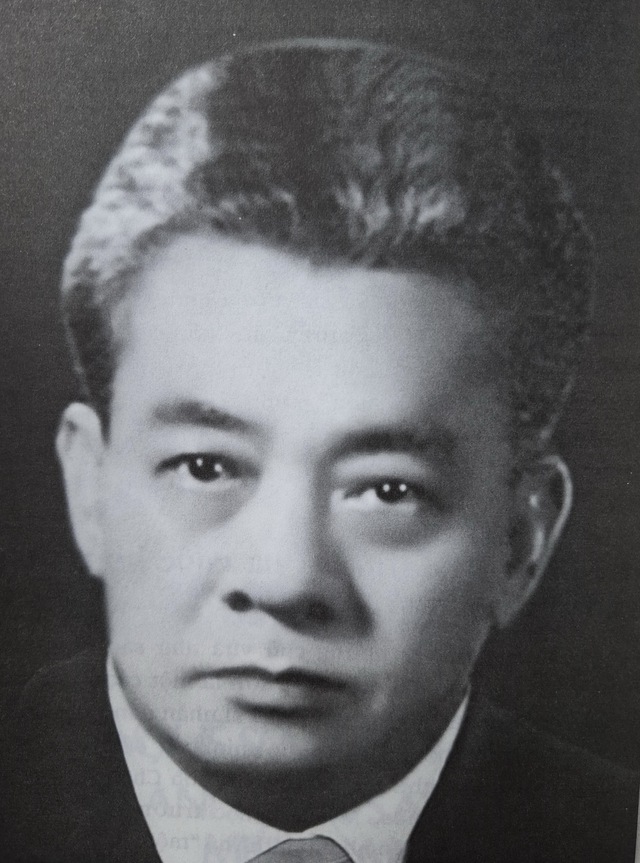
![[Photo] Hanoi morning of October 1: Prolonged flooding, people wade to work](https://vphoto.vietnam.vn/thumb/1200x675/vietnam/resource/IMAGE/2025/10/1/189be28938e3493fa26b2938efa2059e)
![[Photo] Keep your warehouse safe in all situations](https://vphoto.vietnam.vn/thumb/1200x675/vietnam/resource/IMAGE/2025/10/1/3eb4eceafe68497989865e7faa4e4d0e)
![[Photo] President of the Cuban National Assembly visits President Ho Chi Minh's Mausoleum](https://vphoto.vietnam.vn/thumb/1200x675/vietnam/resource/IMAGE/2025/10/1/39f1142310fc4dae9e3de4fcc9ac2ed0)











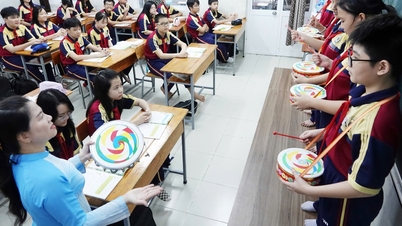

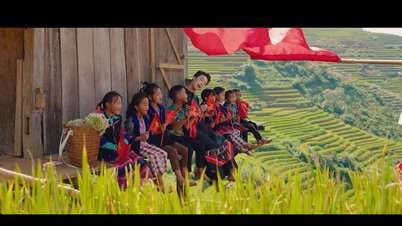

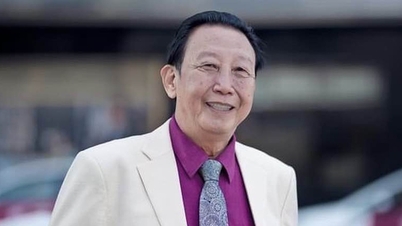











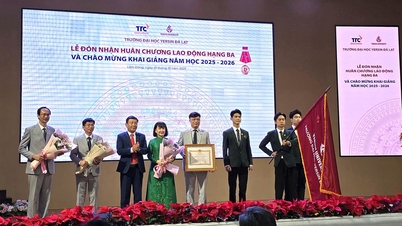
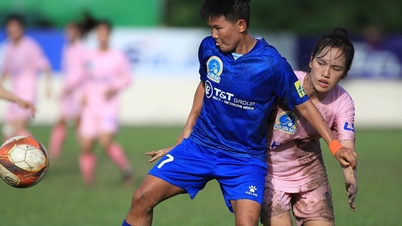



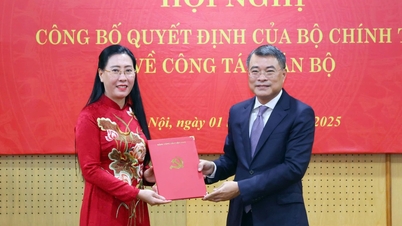










































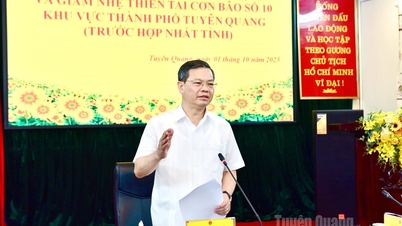



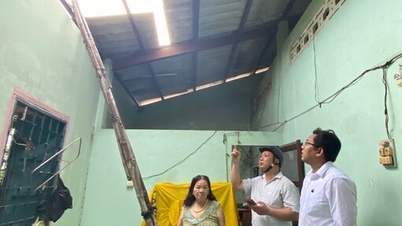













Comment (0)